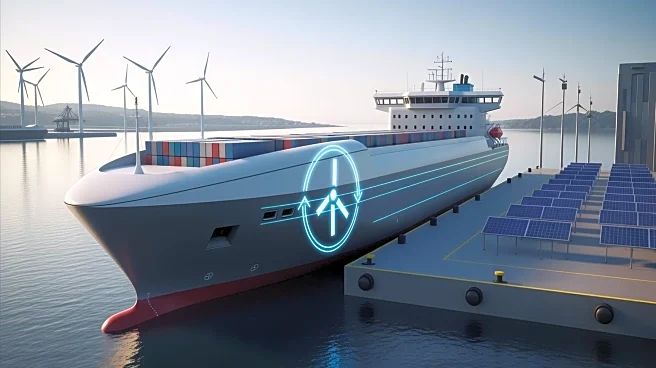What's Happening?
Anew Climate and Seaspan Energy have successfully completed their first ship-to-ship loading operation of renewable liquefied natural gas (Bio-LNG) at the Port of Long Beach, California. This operation marks a significant milestone in the transition to lower-carbon
marine fuels on the North American West Coast. The Bio-LNG was produced using renewable natural gas sourced from a Morrow Energy facility, which boasts a low carbon intensity. This initiative is part of a strategic agreement between Anew and Seaspan to deliver Bio-LNG at scale, aiming to decarbonize maritime transport.
Why It's Important?
The successful loading of Bio-LNG by Anew Climate and Seaspan Energy represents a critical step forward in maritime decarbonization efforts. As the shipping industry faces increasing pressure to reduce its carbon footprint, the deployment of Bio-LNG offers a viable solution for lowering emissions. This development could accelerate the adoption of renewable fuels in commercial shipping, potentially leading to significant environmental benefits. The initiative also highlights the growing importance of sustainable energy solutions in the maritime sector, which could influence regulatory policies and industry standards.
What's Next?
Following the successful Bio-LNG loading operation, Anew Climate and Seaspan Energy are likely to continue their efforts to scale up the deployment of renewable marine fuels. The companies may focus on expanding their supply chain capabilities and forging partnerships with other stakeholders in the shipping industry. As the demand for sustainable fuels grows, regulatory bodies may also consider implementing policies to support the transition to lower-carbon alternatives. The maritime industry will be closely monitoring these developments to assess the impact on shipping operations and environmental compliance.

















